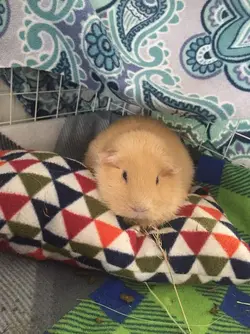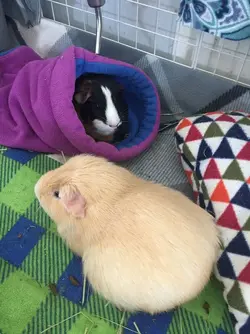Scooter Pie
Teenage Guinea Pig
- Joined
- May 26, 2020
- Messages
- 595
- Reaction score
- 910
- Points
- 495
- Location
- Bethlehem PA, Northeastern USA
Buttercup is about 4, Ive had her for 2 years and she's my first piggie (along with her sister Nutmeg who departed last April)
She's got blood in her urine again. It's been 4 weeks since she finished her last antibiotics. This has been going on since June. 4-6 weeks of antibiotics at a time and it returns after 3-4 weeks.
Last time this happened she had some ulcerations on her vulva. Silver cream took care of it. That seems to be returning too.
Anyway, she goes to the vet tomorrow. I'm just sad for her.
On top of it she's losing fur on her sides. Ive suspected ovarian troubles for a while (crusty nipples and always in season, climbs on her little cage mate daily). Ive told the vet this and she couldn't feel anything on exam. The fur loss is new.
Anyone have a sow on antibiotcs permanently? She is on potassium citrate and hydrochlorothiazide twice a day for life now.
She's got blood in her urine again. It's been 4 weeks since she finished her last antibiotics. This has been going on since June. 4-6 weeks of antibiotics at a time and it returns after 3-4 weeks.
Last time this happened she had some ulcerations on her vulva. Silver cream took care of it. That seems to be returning too.
Anyway, she goes to the vet tomorrow. I'm just sad for her.
On top of it she's losing fur on her sides. Ive suspected ovarian troubles for a while (crusty nipples and always in season, climbs on her little cage mate daily). Ive told the vet this and she couldn't feel anything on exam. The fur loss is new.
Anyone have a sow on antibiotcs permanently? She is on potassium citrate and hydrochlorothiazide twice a day for life now.

